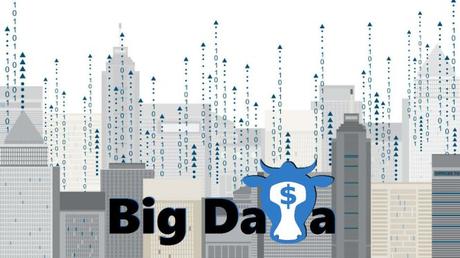Over the recent years, the concept of big data has taken off in a big way. However, very few have realized the value of gold mine they possess. In general terms, the concept of big data can be explained as large sets of data that may be analyzed by computers to reveal the latest trends. There are endless possibilities of what businesses can do with all the data, be it predicting buying habits of customers, segmented by age and geography. The data sets also can help with key business applications, particularly in corporate treasuries.
We all know that cash is the king but when it comes to the technologically advancing society, cash may have a new challenger, i.e. big data. Today, the importance of big data has grown in the eyes of both individuals and businesses. For individuals, it’s comforting (or unnerving depending on the point of view) to know who has access to personal information whereas businesses choose big data to attract more revenue. Moreover, it even allows companies to compare products and services, expand marketing efforts and target a specific range of audiences. As a result, you will find numerous reliable and recognized big data companies who strive hard to make their mark in the tech revolution.

After finding major corporations like Amazon and Microsoft in the lead, it seems to be an increasing centralization of big data. In fact, it may even interest you to know that tech giants like Facebook or Google continue to gather data, they have the opportunity to control who has access to it.
About Blockchain Technology
Everyone and everything produce data. Starting from machine store cycle counts, battery power, and voltage readings. Humans not being programming entities cannot store data through stories, memories and even body language as well as measurable data from wearable devices. As a result, blockchain technology has led to the creation of platforms that put data producing agents’ in the driver seat.
“By starting a network of data transactions, blockchain companies have found a way for humans and machines alike to buy and sell data on a decentralized exchange.”
Appealing Possibilities
Overall, usage of big data can extend cash flow forecasting, foreign exchange, and liquidity planning. This data, in particular, can help numerous corporate teams move beyond the manual aggregation of hundreds of excel-like templates just to keep an eye on potential cash flows in a more centralized way.
Harnessing big data for a range of cash management applications may not be widespread but things are moving fast. What I mean is you will come across a wide range of technology that allows software programs to learn and update continually and develop their own logic.
Conclusion
Unfortunately, enterprises are years away from getting full value from their data assets. Throwing cash at the problem isn’t helping matters either. Therefore, companies need to scale back their ambitions to invest in projects that are more evolutionary than revolutionary in nature, looking to tweak rather than overhaul existing operational practices.

